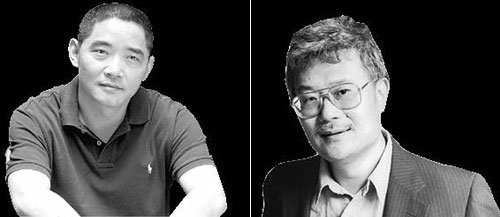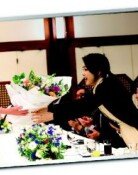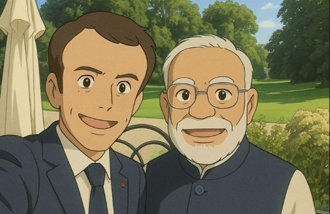Two Books Make Caricature of China

Waiting, by Ha Jin, translated by Kim Yeon-su, and published by Sigonsa -
Every summer, Lin Kong went to Eochun to divorce Su Wui.
Waiting, written by Ha Jin, starts with this sentence. It is lyrical but shocking. Waiting catapulted the Chinese writer to fame in America. Ha Jin went to the U.S. at the age of 29, began writing in English, and ending up garnering several authoritative American literary awards, including the PEN/Faulkner Award and the National Book Award with Waiting.
Though the story is unfolding at the time of the Cultural Revolution, the author didnt directly deal with the Revolution in the story. It tracks three peoples 18-year long relationship: an indecisive medical doctor named Lin Kong, his conservative wife named Su Wui, and an attractive urban nurse named Manna Wu. Yielding to his parents wishes, Lin marries Su Wui. Though his wife is devoted to him and his parents, he is reluctant to be with his boorish wife in front of people.
One day, he meets Manna Wu, a charming, modern nurse, and falls in love with her. To choose Manna over his wife, he returns home every year to divorce Su Wui. But he always changes his mind at the last moment. So he turns to a law that allows him to separate with his wife without her consent if they live apart for 17 years. During those years, Mannas beauty withers, and she is sexually assaulted by another man. Against all odds and after a long wait of 18 years, however, she and Lin Kong are finally married.
Did they live happily ever after? The author inserted a sad reverse at the end of the story. He illustrated their story in such a plain and lone manner that it takes on a pathetic love story. However, thats not all he meant to say. He contrasts Su Wui and Manna Wu to tradition and the modern society, respectively, and places Lin Kong into conflict, reflecting modern-day China. Though the novel did not reveal the atrocities of the Cultural Revolution in a straightforward manner, it resonates with most readers. It gives an allusion that the depth of wounds afflicted by love is that caused by the Revolution.
Tears, by Su Tung, translated by Kim Eun-sin, and published by Moonhakdongne -
The story of Maengannye is one of four leading Chinese folktales. Looking for her husband who was commandeered to build a fortress, Maengannye embarks on a trip and finally reaches the construction site. However, she is told that her husband has died. She sheds tears day by day under the fortress, which causes it to collapse, which reveals her husbands remains.
Su Tung, who is well-known here in Korea as an author of Me, the Life of a King, and Rice, added imagination to this narrative. He transformed Maengannye to Binu, whose tears come out from her hair. As the emperor slaughtered those who shed tears on his uncles death at the end of the Jin dynasty, weeping tears was forbidden. The ban on tears led women to learn how to stealthily cry. Binus hair is always soaked with tears and smells foul.
She marries a poor but diligent man named Wan Chiryang, and they live happily together. But he is driven to forced labor to build the Great Wall. She sets out for a long journey looking for her husband.
Su Tungs imagination is striking. All the hardships she goes through are an innuendo about modern capitalism: a human market where humans are traded as goods, a hunting ground where children become a target of hunting, and so on. Binu is caught by an official who makes medicine using her tears, and it is sold to others by child villains.
Though it is a lengthy story, its a fast read. Helping readers feel the power of its epic narration, which is a characteristic of Chinese novels, it also touches the issue of alienation. Su Tung makes readers aware of the sublimity of tears shed by people who are left behind from capitalism.
kimjy@donga.com
Headline News
- Yoon removed from office by unanimous court decision
- Constitutional Court mentions responsibility of both Yoon and National Assembly
- Won-dollar rate falls to 1,430 range after impeachment ruling
- Teacher with spinal cord injury transforms into career counselor
- U.S. redeploys Patriot missiles from S. Korea without replacement forces







